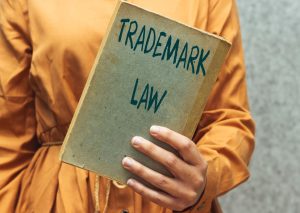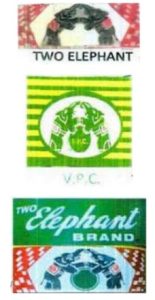 Vide recent order dated February 27, 2024, the Delhi High Court (hereinafter referred to as “the Court”) dismissed the application filed by Puneet Chhabra, Proprietor of Rama Wire (hereinafter referred to as the defendant, under Order XXXIX Rule 4 of Code of Civil Procedure, 1908 for vacation of ex-parte ad interim injunction order granted in favour of Kewal Krishnan Bansal, Proprietor of M/S VEE PEE Bansal and Company (hereinafter referred to as the plaintiff). While rejecting the application, the Court made the ex-parte ad interim injunction order dated May 11, 2023, absolute.
Vide recent order dated February 27, 2024, the Delhi High Court (hereinafter referred to as “the Court”) dismissed the application filed by Puneet Chhabra, Proprietor of Rama Wire (hereinafter referred to as the defendant, under Order XXXIX Rule 4 of Code of Civil Procedure, 1908 for vacation of ex-parte ad interim injunction order granted in favour of Kewal Krishnan Bansal, Proprietor of M/S VEE PEE Bansal and Company (hereinafter referred to as the plaintiff). While rejecting the application, the Court made the ex-parte ad interim injunction order dated May 11, 2023, absolute.
Facts of the Case
The plaintiff is the registered proprietor of the trademark  under the Trademarks Act, 1999, in Class 6, registered from April 24, 1979, as well as the copyright registered for the artistic work from March 24, 1979. The plaintiff’s mark was registered and renewed up to 1989 but was later removed for non-renewal. It was later renewed in the year 2019 and subsisted till date. The plaintiff submitted that the acronym VPC also figured on the plaintiff’s pack, is an abbreviation for M/s. VEE PEE Bansal and Company. The trademark is registered with respect to goods in the nature of common metal and alloys, including materials such as bed joints and wire springs for furniture.
under the Trademarks Act, 1999, in Class 6, registered from April 24, 1979, as well as the copyright registered for the artistic work from March 24, 1979. The plaintiff’s mark was registered and renewed up to 1989 but was later removed for non-renewal. It was later renewed in the year 2019 and subsisted till date. The plaintiff submitted that the acronym VPC also figured on the plaintiff’s pack, is an abbreviation for M/s. VEE PEE Bansal and Company. The trademark is registered with respect to goods in the nature of common metal and alloys, including materials such as bed joints and wire springs for furniture.
The plaintiff had instituted the trademark infringement and passing off proceedings against the defendant alleging that it is using a nearly similar marks, with the logo “TWO ELEPHANT BRAND” and the acronym VPC. The marks of the defendant are represented below:

On May 11, 2023, the Court granted ex-parte ad interim injunction against the defendant, placing reliance on the precedents laid down by Laxmikant V. Patel v. Chetanbhai Shah and Midas Hygiene Industries (P) Ltd v. Sudhir Bhatia with an observation that a prima facie case of infringement, by the defendant, of the plaintiff’s registered device mark as well as an attempt to pass off the goods of the defendant as those of the plaintiff by using a similar mark is clearly made out and an injunction has necessary to follow even at the initial stage.
The defendant filed an application under Order XXXIX Rule 4 of the Code of Civil Procedure 1908, seeking vacation of the ex-parte ad interim injunction. The defendant contended that the plaintiff concealed the subsequent renewal of the plaintiff’s registered trademark in 2019 after its removal in 2010. Further, the defendant also relied on its copyright registration of the artistic work  , which was registered in his favour in 2018, and the trademark registration for the device
, which was registered in his favour in 2018, and the trademark registration for the device , which was filed in 2011 and secured when the plaintiff’s mark was abandoned for non-renewal. Lastly, the defendant alleged that the evidence adduced by the plaintiff to show the use of the trademark through invoices is fabricated, and reliance cannot be placed upon them.
, which was filed in 2011 and secured when the plaintiff’s mark was abandoned for non-renewal. Lastly, the defendant alleged that the evidence adduced by the plaintiff to show the use of the trademark through invoices is fabricated, and reliance cannot be placed upon them.
The plaintiff refuted all allegations and contended that lack of renewal is not relevant for claiming user since, at the time of institution of the suit in the year 2023, the trademark of the plaintiff was registered with a history of usage from the year 1979 and additionally, a copyright registration as well from the year 1979. Further, the plaintiff also apprised the Court of having filed a rectification petition in relation to the copyright registration of the defendant.
Legal queries raised in the proceeding
The Court, after hearing submissions of both parties and perusing evidence on record was of the view that the application of vacation sought by the defendant cannot subsist in light of plaintiff’s copyright registration since the year 1979 and trademark registration since the year 1979, even if the same was not on the register from the period of 2010 to 2019.
The Court made a stark observation that the defendant had, in fact, applied for registration of the same trademark in 2011 during the period of non-renewal of the trademark and also got registration of the copyright of the same artistic work in 2018 despite the prior trademark and copyright registration of the plaintiff. The Court held that since the defendant had adopted absolutely identical marks, their adoption could not be considered bona fide.
With regards to the allegation of fabrication of evidence, it was held that such a question is not relevant for interim injunction and shall be considered at the time of trial. Considering all facts, the Court made its ex-parte ad interim injunction order absolute. This case underscores the importance of the rights of prior users of a trademark. Interestingly, even though copyright subsists in itself, registration of copyright does favour a Plaintiff in such proceedings to tilt the balance of convenience in their favour.
Authors: Manisha Singh and Swati Mittal
First Published by: Lexology here



